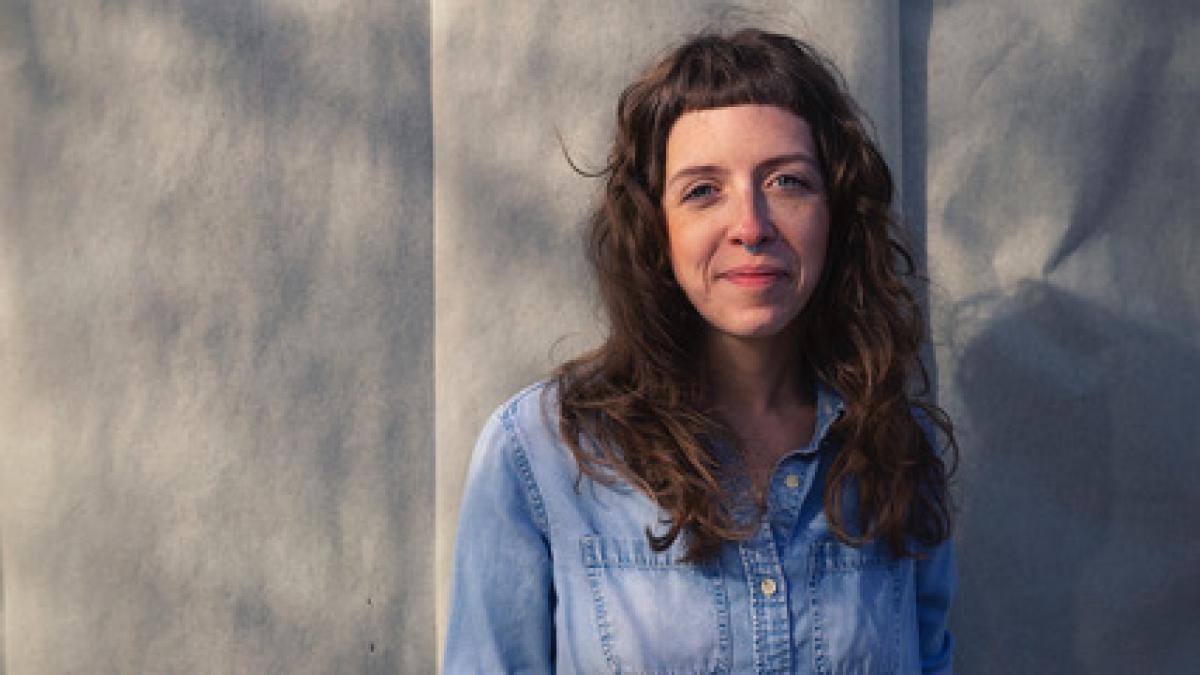Expert in theater and dance for the very young to join ASU as assistant professor

Amanda Pintore
The School of Music, Dance and Theatre at Arizona State University welcomes new faculty member Amanda Pintore as assistant professor of theater for youth and community and acting.
Pintore, who earned her MFA in theater for youth from ASU, is an artist, director, choreographer, creator and educator. She specializes in arts integration, creative facilitation strategies and training in teaching artistry. While working at the Lawrence Arts Center in Kansas, Pintore founded the Theatre and Dance for the Very Young program there. She also served as chair of the Theatre and Dance for the Very Young Conference — the first-ever conference of its kind. She will be working with ASU students in both the theater for youth and community and acting programs.
“We are thrilled to welcome Amanda Pintore back to ASU,” said Heather Landes, director of the School of Music, Dance and Theatre. “Her expertise in teaching artistry, theater and dance for the very young, devising with youth and their caregivers, arts integration and creative facilitation strategies adds critical content to our offerings and enhances learning opportunities for our students in theater for youth and community, acting and in all our education programs in the school.”
During the pandemic, Pintore found creative methods for bringing theater and dance to children and families, including outdoor, drive-in and virtual interactive productions. She served as lead researcher and director for “Hubbub,” a virtual participatory performance that engaged children up to 6 years old and their families. During research sessions, they explored sounds, noises and words to develop the interactive performance enjoyed by families in 14 states and five countries.
Pintore’s passion for the arts and creativity started as a teen in Omaha, Nebraska. She spent her summers performing, working as an intern and student-directing at The Rose Theater.
“That was the early spark,” Pintore said, “then throughout undergrad, every summer I would intern at different children's theaters across the U.S., and that path eventually led me to getting my MFA at ASU.”
She said she is excited to be returning to Arizona, bringing with her new experiences and connections.
“What I love about this field is that I've really been allowed to evolve over and over again. I'm excited to come back and be a different person than I was the first time I was there, in the best way possible,” Pintore said. “Now the world is different, and I’m different. I’m going to come into it with open eyeballs and open ears.”
She said she is looking forward to working with students and helping them collaborate with others.
“A lot of people helped me along the way, and so I'm really excited about working with the students — whether they want to be educators, practitioners or researchers — and being as useful as I can in helping them connect with the field at large,” Pintore said. “I'm eager to see what might be possible with collaboration.”
According to Pintore, childhood educators face a big challenge in finding balance and avoiding burnout, and she hopes to help student artists address that.
“I want to help teaching artists learn how to sustainably build that path in a way that they can take care of themselves and also continue to find joy in their work,” she said.
Her advice for students entering the field: build, observe and respond.
“Planting seeds takes time. I look back now on what I have done in the last five years, and the breadth of what I've done, and I have to re-remind myself of that,” Pintore said. “Breathe into your work, and keep paying attention as you go. Every project feels like the most important thing until it's not.”
Pintore said students need to remember that faculty members are growing and learning as well, and to appreciate the qualities each professor brings to the learning experience.
“I'm delighted for people to not only learn who I am as an educator, but also about the unique, quirky human that I am,” Pintore said. “Humor and play are really built into my foundation. I plan to invite students to be vulnerable, weird, silly, play and to reinvestigate their own relationship with what it means to work with youth or to make things for youth.”
More Arts, humanities and education

ASU instructor’s debut novel becomes a bestseller on Amazon
Desiree Prieto Groft’s newly released novel "Girl, Unemployed" focuses on women and work — a subject close to Groft’s heart.“I…

‘It all started at ASU’: Football player, theater alum makes the big screen
For filmmaker Ben Fritz, everything is about connection, relationships and overcoming expectations. “It’s about seeing…

Lost languages mean lost cultures
By Alyssa Arns and Kristen LaRue-SandlerWhat if your language disappeared?Over the span of human existence, civilizations have…

